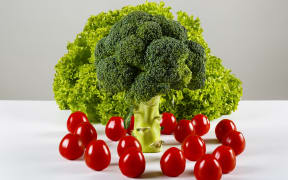Inflation has tracked sideways as a fall in fuel and food prices offset rising electronic games, airfares, and housing costs.

Photo: Photo /123RF
The consumer price index (CPI) rose 0.1 percent in the three months to December, compared with a 0.9 percent rise in the previous quarter.
The annual inflation rate was unchanged at 1.9 percent.
Tumbling world oil prices and a seasonal fall in in fresh fruit and vegetables were the main influences in the easing pressure.
"The price of petrol fell continually throughout the quarter, down from highs in October," Stats NZ prices senior manager Paul Pascoe said.
"By the last week of December, the pump price was 8.3 percent below the December quarter average."
An increase in the supply of fresh fruit and vegetables saw their prices fall more than 12 percent, with family food bills down more than one percent.
However, price pressures remain with higher rents and local body rates, and airfares also rose as is usual at this time of the year.
The surprise price increase was for games and toys as more sophisticated video games cost more.
The numbers were largely in line with expectations but remain below the Reserve Bank's two percent target point.
ASB economist Kim Mundy said there were definitely inflation pressures present but not sufficient to prompt the Reserve Bank (RBNZ) to change its policy.
"Despite the muted headline figure, measures of underlying inflation highlighted a distinct increase in price pressures."
The central bank has kept its official cash rate (OCR) on hold at a record low 1.75 percent since late 2016.
"Given the recent slowdown in economic growth and ongoing downside risks to the outlook, we think the RBNZ will remain patient for now. We continue to expect the RBNZ to leave the OCR on hold until August 2020," Ms Mundy said.




